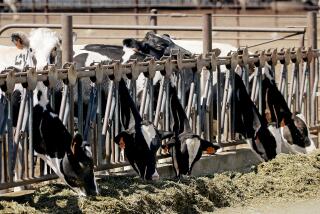Long-Distance ‘Slams’ on the Rise
- Share via
Christine Layer was surprised to receive a telephone bill listing a company named LDDS as her long-distance carrier. An MCI customer, Layer hadn’t ordered a switch to LDDS.
The Marina del Rey resident had been “slammed”--switched to a long-distance company without her permission. Government regulators say complaints about slamming are rising despite 1 1/2-year-old rules intended to protect consumers from unauthorized switches. During the first 10 months of 1993, complaints about slamming jumped 64%, according to the Federal Communications Commission.
“The staff is very concerned about it,” said Robert Spangler, deputy chief of the FCC’s informal-complaints branch.
Under FCC rules, a company selling long-distance service over the phone must take one of the following steps:
* Get your written consent to switch.
* Have a third party call you to verify your switch.
* Send you a letter telling you about the switch and how you can refuse it if you don’t want to switch.
Spangler said a review of complaints shows that some lesser-known long-distance companies are skirting the rules. In some cases, he said, long-distance companies are getting verification from children.
Also, Spangler said, long-distance companies are enticing people to switch with sweepstakes entries that double as long-distance order forms. Contest entrants failing to read the solicitations have unwittingly ordered new long-distance service, he said.
Spangler said the FCC has asked one company using the sweepstakes pitch, Texas-based Matrix Telecommunications, to alter its solicitations.
According to the companies involved, Layer’s problem resulted from an error on the part of LDDS. The tiny, Washington-based company mistakenly listed Layer’s number under the name of a corporate customer. After she complained, Layer’s service was switched back to MCI at no charge, as required by federal rules.
If you think you’ve been slammed, contact your local phone company and tell them you did not order service from the new company and you want “change charges” suspended while they investigate the unauthorized switch. Then call the long-distance company you were switched away from and ask to be reconnected. There should be no charge for the reconnection. You can also complain to the FCC.
To prevent being slammed, you can file a document with your local phone company telling them you want to be notified if they receive an order to switch your long-distance service. Known as a primary interchange carrier restriction form, the document is available from your local phone company. Layer has filed one with GTE.
*
Milking the consumer? The state-approved increase in what dairy farmers get paid for milk is showing up in supermarket dairy cases, again stirring controversy over retail milk prices.
An informal survey shows that the price of a gallon of whole milk in Los Angeles has risen by as much as 30 cents since November, twice the 15 cents-a-gallon jump in raw milk prices approved by the state Department of Food and Agriculture two months ago. While raw milk prices are regulated, retail prices are not.
Jay Goold, vice president of Western United Dairymen in Modesto, said supermarkets are using the raw milk price hike as an “opportunity to take higher profits.” Along with consumer organizations, dairy farmers have maintained that milk is among the most profitable items in the supermarket.
Consumers Union is calling for a state investigation.
“I don’t know why a law enforcement officer, like (state Atty. Gen.) Dan Lundgren, isn’t looking into this parallel pricing on the part of supermarket chains,” said Harry Snyder, co-director of Consumers Union’s San Francisco office.
Parallel pricing means that merchants adjust prices to match competitors; it does not in itself mean anti-competitive activity has taken place. Lundgren’s office did not respond to a request for comment.
A spokesman for the Dairy Institute, an organization representing many of the supermarkets that process milk, said he could not comment on price changes at individual stores. But Craig Alexander, the Dairy Institute’s executive director, said that overall food prices are rising more rapidly than milk prices.
Citing BLS statistics for the country as a whole, Alexander said food prices have increased 42.7% over the last decade, while whole milk prices have risen 29.5%. “I would say that milk is still a good value for the consumer,” he said.
*
Unfare: American Airlines is offering $20 fare refunds to Elvis impersonators flying to Memphis on Saturday to attend the late singer’s 59th birthday celebration. Tough act for women planning to go.
Milk Prices Increase
Milk price changes at five leading Southern California supermarkets. Prices are for a gallon of whole milk. Figures were compiled from a random survey in Los Angeles County.
Jan., Feb., Percent Market 1994 1993 change Ralph’s $3.05 $2.73 +11.7% Ralph’s Imperial 2.94 NA NA Vons Jerseymaid 3.11 2.73 +13.9 Vons Westwood 3.01 2.65 +13.6 Alpha Beta Carnation 3.09 2.69 +14.9 Alpha Beta Brentwood 2.99 2.59 +15.4 Albertson’s 3.09 2.73 +13.2 Lucky Lady Lee 3.09 2.73 +13.2 Lucky Farm Fresh 2.99 2.63 +13.7






